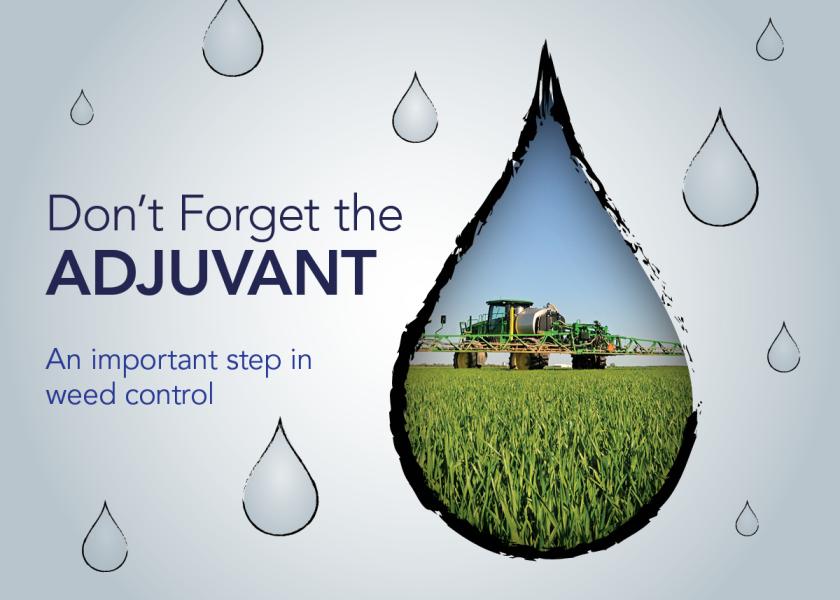Don't Skip This Important Step In Weed Control

By Bridgette Readel
Imagine a beautiful spray day. Sunshine with a 3 mph to 7 mph wind. You’ve discussed and planned proactive weed control ideas on this wheat field with your farmer-customers. Things are about to go smoothly.
That is, you feel optimistic until you realize an adjuvant plan was overlooked. When controlling weeds, your adjuvants are just as important as your herbicides.
“The biggest barrier to entry for a herbicide is passing through the waxy leaf cuticle,” says Kyle Gustafson, WinField United. “Oil adjuvants ‘melt’ the waxy cuticle, which allows the herbicide to pass across a permeable membrane. It’s like a pharmacist taking an active ingredient medication and compounding it with oil to help it work as a dermal medication.”
Herbicides are often oil-loving, and they don’t mind the extra boost from an oil adjuvant to penetrate the leaf cuticle.
Herbicide + oil adjuvant = improved active ingredient uptake by the plant and heightened weed control performance.
Among the weeds that can most benefit from the addition of adjuvants are waterhemp and kochia. Both of these plants are wildly adaptive to their changing environments, and we need to use every weapon, including accurate use of adjuvants, available to control them.
“70% to 80% of my scouted acres have kochia as their No. 1 weed concern,” says Dan Moser of Centrol Crop Consultants. “There are high numbers of resistance to modes of action. If you’re going to control it, it needs to be small, and an oil adjuvant needs to be in the tank mix.”
3 Variables to Factor In
- Water
Using higher water volume per acre leads to taking more time to complete an application, but the higher water rates are crucial to improve coverage and weed control. Take the time to visit with your applicators to ensure the right agronomic decision is made for the field. Cutting water rates will cost everyone in the long run.
2. Herbicide and Adjuvant Formulations
The winter months are a great time to do your homework for the next spray season. As you’re creating plans for small grains’ crop protection, review what you’ll add as adjuvants and consider what herbicide formulations can act as an adjuvant. If the formulations are oil-based, then you already get part of the adjuvant boost you might need. For example, sulfonylurea or SU herbicides often have an oil base and are thought to “heat up” a tank mix. What you actually see is more oil action that thins out the leaf cuticle quickly and gives the plant leaf a scald. If you know what herbicide formulations you’re using, then you can adjust the adjuvants to reduce leaf burn risk.
3. Weather
Are you seeing drier conditions as the spray season approaches? This will bring on a thicker leaf cuticle and motivate a need to use an oil adjuvant. Agronomists often say weeds are tougher to eliminate at this time of year.
When your phone starts to ring on those fantastic spray days, be sure to have your plans in place to keep spraying in the field on track.







